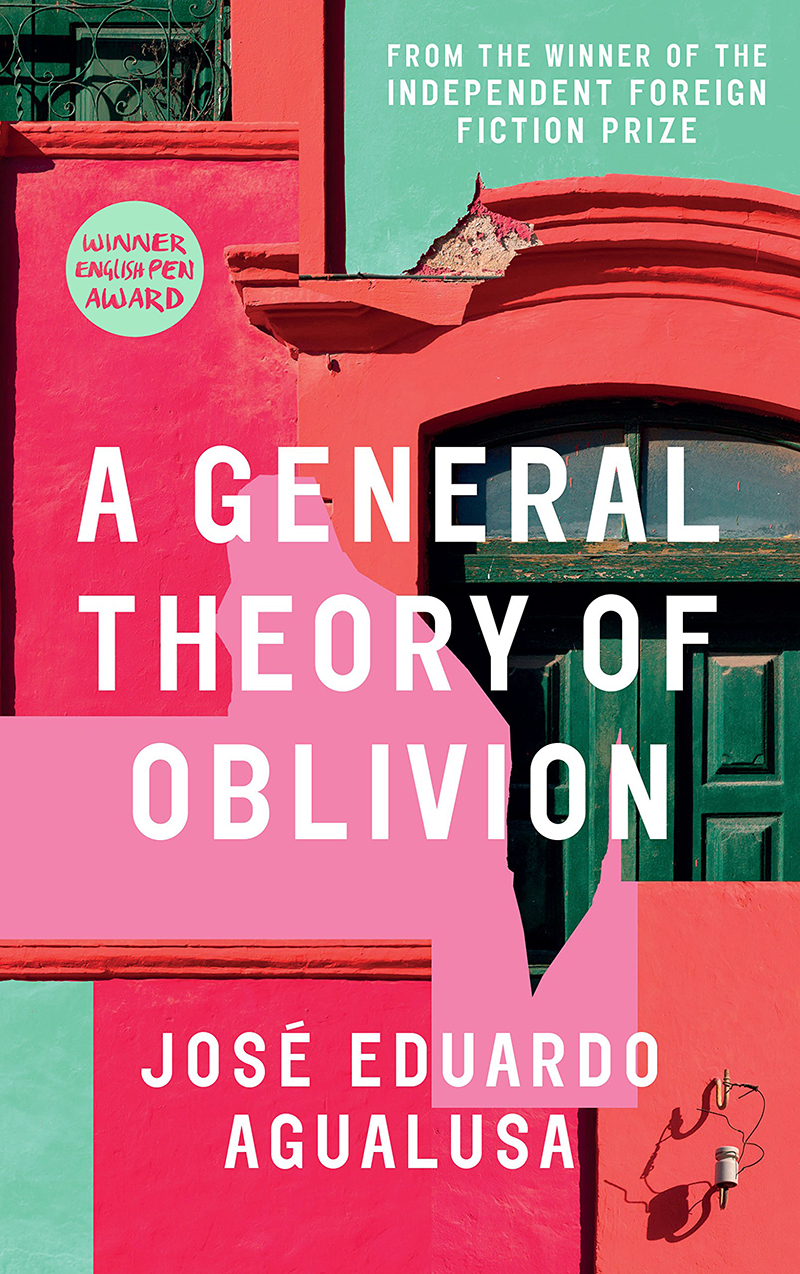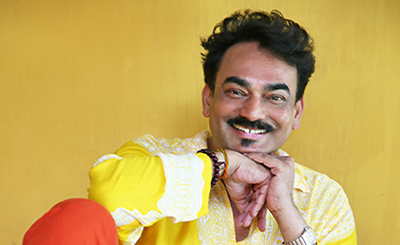
José Eduardo Agualusa. Photo: Wikipedia Commons
Angolan writer José Eduardo Agualusa on A General Theory of Oblivion, winner of Dublin Literary Award
Angolan writer and journalist José Eduardo Agualusa was awarded the International Dublin Literary Award for his novel A General Theory of Oblivion in June this year. Translated by Daniel Hahn, the novel, which was also shortlisted for the 2016 Man Booker International Prize, beat a shortlist of 10 titles from around the world, including those by literary luminaries such as Irish author Anne Enright, to claim the €100,000 prize.
Currently, Agualusa resides in the Island of Mozambique where he has been working to establish a public library. Agualusa writes predominantly in his native language, Portuguese. His books have been translated into 25 languages, most notably into English by translator Hahn, a frequent collaborator of his. Much of Agualusa’s writing focuses on the history of Angola. His previous novel, The Book of Chameleons (2006), won the Independent Foreign Fiction Prize in 2007. He is the first African writer to win the award since its inception in 1990.
Angola has gone through serious conflicts, and in particular, civil wars. In this interview, Agualusa says that he feels that in order to overcome pain and achieve reconciliation, it is necessary to remember. “In order to achieve genuine reconciliation, we must first discuss the past. We may possibly cry together to mourn together. My work as a writer is also that of remembering and trying to broaden the debate,” he says. Excerpts from an interview:
THE PUNCH: A General Theory of Oblivion, which fetched you the International Literary Dublin award, is a novel based on the real-life experiences of Ludovica Fernandes Mano, a Portuguese expatriate who bricks herself into a penthouse apartment in Luanda, the Angolan capital. In your note, you write that the novel grew out of your efforts to write the screenplay for a feature film based on Ludovica’s story. Tell us about the trigger and the process to turn her story into a novel.
JOSÉ EDUARDO AGUALUSA: The novel is a work of pure fiction. The idea came to me during a time when I lived in Luanda, and I spent a lot of time in an apartment quite similar to the one I describe in the book. It was an apartment in a building that in colonial times belonged to the upper bourgeoisie, but which after the independence had been occupied by people from the ghetto/musseques. Later, with the end of the socialist period, the building was recovered and the rich returned. I lived in the apartment in a period of transition: there were already very rich people in some of these apartments. In others, however, poor families still lived with pigs and chickens. It was a period of great political intolerance. As a journalist and writer I was under constant pressure. I began to wonder what my life would be like if I did not go out on the street again. It was then that this character was created, this Portuguese woman, who, after arriving in Luanda, just before the independence, witnessed the beginning of the civil war and, terrified by the events, decided to barricade herself inside her own apartment. I told the story to a friend of mine, a film director, who asked me to write a script, which I did. He, however, never got funding to make the film. So, years later, I decided to write a novel from the script.
THE PUNCH: The novel is divided into standalone chapters. How did you settle on its structure?
JOSÉ EDUARDO AGUALUSA: I never know what will happen when I start writing a novel. I write to know what will happen. Usually the characters are the ones that build the story. Thus, the structure is developing along with the novel. I create a structure that can support the plot, not the other way around. Of course, as I advance I am also forced to retreat, in order to rewrite the whole story. In regards to this novel things were a little different because I already had the script. I created the structure from this script. In the book, the character is writing her story on the walls of the apartment. As space narrows, since it is limited, she improves her writing, tries to save on the use of adjectives, tries to say the most with the least of words. I tried to do the same in the book.
THE PUNCH: The novel, like many of your previous works, deals with the history of your native Angola, a former Portuguese colony, through the War of Independence (1961-1974) and the civil war that followed (1975-2002). “If I still had the space, the charcoal, and available walls,” Ludo says somewhere in the novel, “I could compose a great work about forgetting: a general theory of oblivion.” While Ludo is intent on forgetfulness, the novel itself is an act of memory, of remembrance. Did you set out to make it a story about a nation struggling to stay rooted as violence threatens to tear it apart?
JOSÉ EDUARDO AGUALUSA: In countries like Angola, which have gone through serious conflicts, and in particular civil wars, there are always two theses: one says that in order to overcome pain and achieve reconciliation, it is necessary to forget. The other says that, on the contrary, we must remember. I defend the second alternative. I believe that in order to achieve genuine reconciliation, we must first discuss the past. We may possibly cry together to mourn together. My work as a writer is also that of remembering and trying to broaden the debate.
THE PUNCH: Where did Luanda, which transforms itself from a city in the throes of a revolution to one in civil war and then capitalism, figure in the wider scheme of the narrative?
JOSÉ EDUARDO AGUALUSA: Luanda may be the central character of the book. Luanda is a difficult city to love. On one hand, it has a very interesting, already relatively long history, of crossroads of cultures. A city that has managed to create an urban tradition, but where, nevertheless, elements of the rural world persist, concretely a whole living mythology. On the other hand, it is an aggressive, noisy, hard city that does not seem to stop for a moment. For a writer, it’s a spring of great stories.
THE PUNCH: There is a great deal of influence of Latin American writers on your writing. Tell us about this influence.
JOSÉ EDUARDO AGUALUSA: I have a Brazilian grandfather. Brazilian culture, in particular literature, has always been part of my life. Brazil, moreover, is a country that was built in parallel with Angola. Angola gave birth to Brazil. Brazil gave birth to Angola. The Portuguese language of Angola is very close to that of Brazil, because Brazilians assimilated thousands of words with an African origin. Also the Brazilian popular culture, essentially of African origin, is very close to the Angolan one. The first time I read a Brazilian author, Jorge Amado, it was as if I were entering a world that was already mine.
Page
Donate Now
More from The Byword
Comments
*Comments will be moderated












